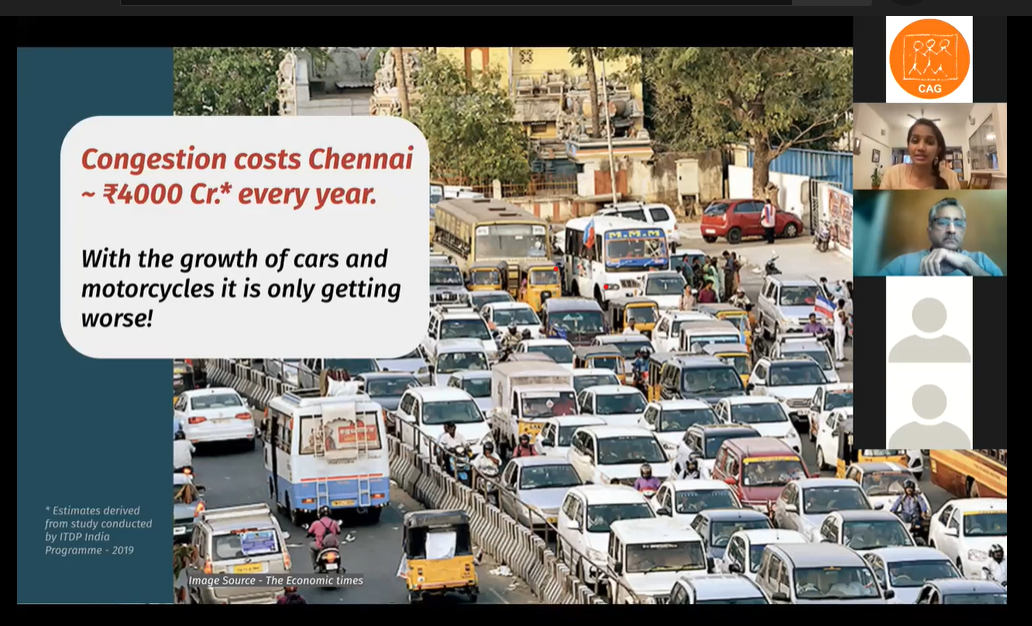Over the years Chennai has had its share of master plans but the efficacy of these statutory documents have been debatable. Once again the Chennai Metropolitan Development Authority (CMDA) is working on its Third Master Plan with a focus on the expansion of the Chennai Metropolitan Area (CMA) and improving infrastructure supply for the city. Expected to launch by 2026, the Third Master Plan is part of the Tamil Nadu Housing and Habitat Development Project (TNHHDP), a World Bank-financed initiative of the state government.
As land use and transport go hand in hand, CAG organised a webinar on the evolution and transformation of master planning and mobility in Chennai to discuss the way Chennai has approached master planning over the years and what we as citizens expect from the Third Master Plan. The speakers for this webinar were Professor A Srivathsan (Head, Centre for Research on Architecture and Urbanism, CEPT University) and Ms Aswathy Dilip (South Asia Director, ITDP).
Professor Srivathsan set the stage by elaborating on the characteristics and limitations of the master plan. He also highlighted the positives and negatives of the current master plan from a transport perspective. He noted that the current plan has not fulfilled its objectives, such as providing more open spaces, minimising agricultural land reduction. He also pointed out that with the market being dynamic and unpredictable, it is always very difficult to review the master plan if the horizon year is around 20 years. Instead, he recommended 5 year assessment cycles. In a rapidly expanding city such as Chennai, about 50% of the population still lack access to affordable housing. He therefore suggested compact development (where the aim is to fully utilise land resources by bringing in high-density development) as the best way forward for Chennai.


Screengrabs of the event and speakers
After an insightful session on Chennai's master plan with Professor Srivathsan, we moved on to understanding the transport network with Ms Aswathy Dilip. She gave insights on the current transportation state of Chennai and elaborated on how a sustainable mobility vision could look in Chennai and the tremendous change that would be required to make this a reality. . She discussed the steps required to create healthy, inclusive, pollution and congestion free streets and cities touching on three main points:
- Reclaim spaces allocated for car parking and give back to cyclists. We need to ensure that cycling is fun and safe for all
- Develop better public transport systems and
- Improve pedestrian infrastructure.
While we were being led to believe that streets and roads belonged to motorists, they are actually public spaces; and keeping these safe and universally accessible by all groups of people would go a long way to bettering residents’ physical and mental well-being. Sustainable, universal mobility is the only way forward.
The webinar ended with an interactive Q&A session. Questions related to street parking, integrating different modes of transit, development of transport networks in the city’s outskirts and the significance of electric vehicles were discussed. Overall the webinar gave a better understanding of the current transport scenario and strategies that need to be followed to improve our city mobility network.